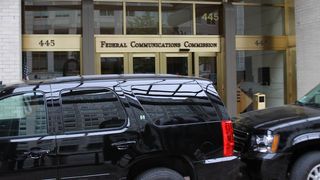FCC Rules WSKQ-FM Radio Broadcast Was Indecent

The FCC has ruled that a radio broadcast over a decade ago qualified as indecent and has reached a consent decree with WSKQ-FM New York in which it will pay $10,000. That was the word from Ajit Pai’s acting Media Bureau chief Michelle Carey.
The FCC, under chairman Tom Wheeler, ruled in March 2016 that the station did not violate an FCC rule against broadcast hoaxes but did not rule on the merits of an indecency complaint, saying even if it were indecent, the violation would not rise to the level of denying renewal of the station's license—the complaints were part of a challenge to that license.
That March decision was appealed.
In the consent decree this week, the FCC's Media Bureau upheld the finding that the hoax rule had not been violated.
As to the indecency complaint, the station had said that the broadcasts were not indecent. But the Media Bureau thought otherwise. "Based on our review of the record, we find that the broadcasts are of a nature that could support a forfeiture proceeding against Licensee for violations… but do not implicate Licensee’s basic qualifications, demonstrate a failure to serve the public interest, convenience, and necessity over the Station’s license term of 1998-2006, or constitute serious violations."
At issue was a Spanish-language broadcast March 8, 2005. The complainants said it used indecent language to describe "how a man desired to have perverse sexual relations.”
No tape or transcript was supplied and the licensee argued about what words had been used and, while conceding the song was racy, said it did not believe it was "in any way indecent."
Broadcasting & Cable Newsletter
The smarter way to stay on top of broadcasting and cable industry. Sign up below
The FCC disagreed.
The FCC under Wheeler also struck an agreement with a Spanish-language station over an indecency complaint.
“The PTC applauds the FCC’s action to hold a broadcaster publicly to account for violating the longstanding broadcast indecency law," said the Parents Television Council, which saw it as a sign of things to come.
"This announcement today should serve as a serious shot across the bow for all broadcast stations, whether they be radio or television, reminding them that the airwaves are public property. Broadcasters borrow the airwaves from the public for free; and in exchange for a broadcast license, they promise to serve the public interest. Congress, the FCC and the courts have all agreed that a broadcaster’s public interest obligation requires licensees not to air legally indecent material at times when children are likely to be in the audience,” said PTC president Tim Winter in a statement.
Contributing editor John Eggerton has been an editor and/or writer on media regulation, legislation and policy for over four decades, including covering the FCC, FTC, Congress, the major media trade associations, and the federal courts. In addition to Multichannel News and Broadcasting + Cable, his work has appeared in Radio World, TV Technology, TV Fax, This Week in Consumer Electronics, Variety and the Encyclopedia Britannica.

